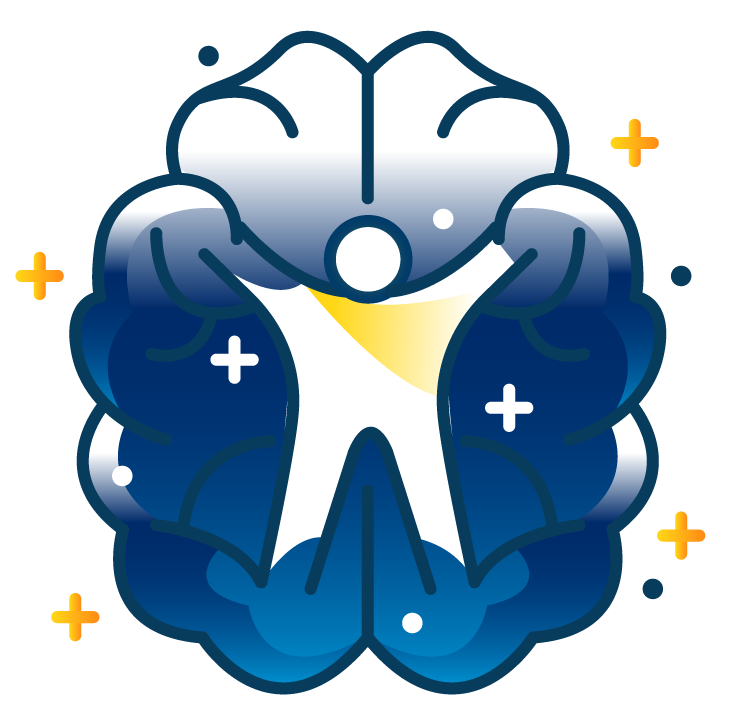In the everyday rush of work, relationships, and expectations, it’s easy for a man’s mind to get pushed to the back burner. We train our bodies. We sharpen our skills. We take action. But what about the engine behind it all? The way you think, adapt, and grow? How you think shapes how you grow. Your beliefs, attention, and daily thought habits quietly determine whether you move forward or stay stuck.
That’s where cognitive psychology makes a grand entrance. It helps you understand how your mind processes information, forms patterns, and responds to challenges, and more importantly, how to work with your mind instead of against it.
This article dives into the top practical cognitive psychology tips for men’s growth, understanding how your thoughts shape your actions, and how small mental shifts can change the way you live and lead. If you are ready to upgrade your thinking and show up stronger, more aware, and more capable, let’s begin.

Source: Pixabay
Tip #1: Adopt a Growth Mindset
Many men want to grow, but few pause to ask how growth really happens. The truth is, it often begins with a change in perspective, the way you view your abilities and setbacks. That is the building foundation for anyone looking to expand their growth mindset.
A growth mindset means believing that your intelligence, skills, and character can develop with time and effort. It stands opposite to the fixed mindset, the belief that you either “have it or you don’t.” For men, this distinction matters deeply. A fixed mindset can make failure feel like proof of weakness. A growth mindset, on the other hand, sees failure as feedback, a sign that you are learning, not losing.
The challenge is that many men grow up conditioned to equate competence with identity. When something doesn’t work, it feels personal. That belief can quietly limit the way you take risks, directly impact your creativity, and force you to restrict yourself emotionally.
Adopting a growth mindset asks you to let go of perfection and embrace progress instead. It means allowing yourself to be a beginner again, to make mistakes, and to keep showing up without judgment. After all, real strength lies in the ability to keep evolving. Start small.
When something doesn’t go as planned, notice your inner voice. Do you hear self-criticism or curiosity? Reframe your thoughts with questions like, “What can I learn from this?” or “How can I handle it differently next time?” Over time, this shift changes not just how you think, but how you grow.
Tip #2: Train Your Cognitive Fitness
Most men understand the value of physical training, but forget that muscles also need consistent exercise to stay strong. This idea of cognitive fitness goes beyond memory games or puzzles. It focuses more on keeping your mind sharp, adaptable, and ready for whatever life brings.
In today’s fast-paced world, mental fatigue has become a quiet epidemic. Long hours, constant screens, and stress can dull focus and decision-making without us even noticing. Many men push through it, thinking mental exhaustion is normal. But just like an overtrained body needs recovery, an overworked mind needs intentional care.
Cognitive psychology shows that small yet consistent habits can rewire how the brain performs. Regular movement improves blood flow and memory. Quality sleep strengthens concentration and problem-solving. Even mindful breaks like stepping away from your phone or taking a few deep breaths give your brain the space to reset.
Training cognitive fitness also means challenging your brain. Read something unfamiliar. Learn a new skill. Have real conversations that make you think. The brain grows through novelty, not repetition. Each new experience builds connections that make you more adaptable and creative.
Start where you are. Prioritize rest, move often, learn deliberately, and give your brain the attention it deserves. Over time, you will notice that the same discipline that shapes your body also forges your mind.
Tip #3: Build Mental Resilience
Life rarely unfolds in straight lines. There are moments when things don’t go as planned, and when pressure mounts, uncertainty grows, even the strongest sense of direction begins to blur. In those moments, mental resilience becomes your anchor.
Most men believe that mental resilience is about pretending to be unaffected by the cultural and societal pressures. However, it is, on the contrary, about learning how to bend without breaking. Many men grow up equating strength with endurance; staying silent with their pain while carrying on with their everyday lives. But what they forget is that resilience comes from adaptability, reflection, and the ability to reset your mind when challenges hit you like a truck.
Cognitive psychology teaches that resilience starts with perception. The way you interpret a situation often matters more than the situation itself. When setbacks arise, the mind tends to spiral into self-doubt or blame. Resilience begins when you pause, step back, and ask, “What is this teaching me?” That small shift turns struggle into growth.
Training resilience also means regulating your emotions. Instead of reacting in frustration or shutting down, practice noticing what’s happening inside you. This isn’t a weakness. It is the kind of control that keeps you grounded when life feels unsteady.
However, one thing to note is that building mental resilience takes time. It is built through experience. Every failure, every adjustment, every recovery, and each challenge you face and choose to learn from strengthens the mental muscles that help you move forward with more humility and strength.
Tip #4: Leverage Social & Environmental Drivers
Growth doesn’t happen in isolation. The people you spend time with, the spaces you move through, and even the daily rhythms you keep quietly shape your mind. For men who want lasting personal development, understanding how their surroundings influence their thinking is one of the most practical cognitive psychology tips for men’s growth you can apply.
Your environment can either sharpen your mind or drain it. Constant noise, clutter, or negative energy creates mental static that makes it harder to focus. On the other hand, a calm and organized space can naturally support better concentration and emotional balance. Start by creating small zones of order; a clean desk, a quiet morning corner, or a screen-free hour in your day. These choices train your brain to associate your environment with clarity.
The same principle applies to the people around you. We tend to mirror the habits, energy, and mindset of those closest to us. Spend time with people who challenge you to think deeper, who listen without judgment, and who value growth over gossip. Good company strengthens mental resilience just as good training strengthens the body.
You can also use your environment to reinforce learning. Place reminders of your goals where you will see them often, a note on your mirror, a quote near your workspace, or even a simple daily intention on your phone’s lock screen. Subtle cues help guide your thoughts in moments when focus slips. Over time, this alignment turns ordinary spaces into silent partners in your growth.
Tip #5: Anchor Growth to Purpose & Identity
Real transformation begins when your mind knows why it is striving. One of the most overlooked cognitive psychology tips for men’s growth is the role of purpose in mental endurance. You can practice mindfulness, train focus, or build better habits, but unless these efforts are anchored to something personally meaningful, they fade with time. The human brain craves direction, and purpose gives it that internal compass.
Start by defining your personal vision through real-world values. “What drives you?” “What kind of man do you want to become when no one is watching? “Write it down, revisit it weekly, and let it evolve as you do. When your daily actions reflect a deeper identity, mental effort feels less like a chore and more like an alignment with your inner self.
Purpose also stabilizes you in difficult times. When stress hits, you will have a stronger sense of “why” to fall back on, a psychological anchor that quiets emotional turbulence and helps you get back on your feet. Over time, this alignment between thought, purpose, and behavior strengthens the brain’s reward pathways, making consistency feel natural rather than a forced chore.
Tip #6: Observe Your Thought Patterns
One of the key cognitive skills for men’s growth is learning to step back and observe one’s own thoughts. The goal is not to suppress or judge what you think. Instead, it is the habit of grounded people to notice the mental loops that quietly shape their behavior and emotions. Most men operate on autopilot, reacting to internal chatter without ever realizing it is there in the first place. But real growth begins when you create space between what you think and how you respond.
Start by catching your mind in motion. When you feel stress, anger, or distraction, pause for a moment and ask: “What story am I telling myself right now?” This simple act activates the prefrontal cortex, your brain’s control center for rational thinking, and weakens the emotional grip of negative narratives. Over time, this awareness builds cognitive flexibility, allowing you to reframe challenges instead of being controlled by them.
Journaling can help make these patterns visible, helping you note down what’s working and what’s stopping you from reaching your personal and professional goals. Write down recurring thoughts that show up during the day, especially those tied to self-doubt, overthinking, or pressure. Seeing them on paper turns the invisible into something manageable and something you can question and redefine.
Observing your thought patterns is like strengthening your mental mirror. It helps you recognize the habits that serve you and the ones that hold you back. With awareness comes choice, and with choice comes the quiet confidence that defines true psychological growth.
Takeaway
Cognitive psychology helps men understand how their mind works so they can guide them with a strong intent. When men apply these practical insights daily, growth stops being an abstract goal and becomes a natural result of awareness and action.
The more you understand your thought patterns, emotional triggers, and decision loops, the more control you gain over your responses. It does not mean that you start silencing yourself and doubting every action you take. Instead, think of it as learning to interpret the decisions you are making, helping you gain insight into what your mind needs to perform at its best.
And remember, mental strength doesn’t mean going it alone. The environment you build, your friends, mentors, routines, and even what you consume daily, shapes your psychology more than you realize. Surround yourself with people and practices that challenge, not drain, your mental energy.
Start small: one mindset shift, one routine upgrade, one honest moment of reflection each day. Over time, these micro-adjustments reshape how you think, decide, and respond to life. If you’re ready to see how your current habits support your mental growth, take our quick quiz and explore where you stand on your cognitive growth journey.






